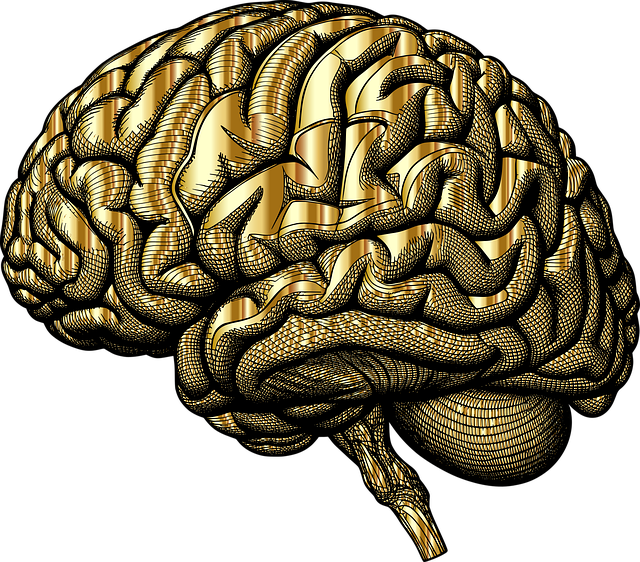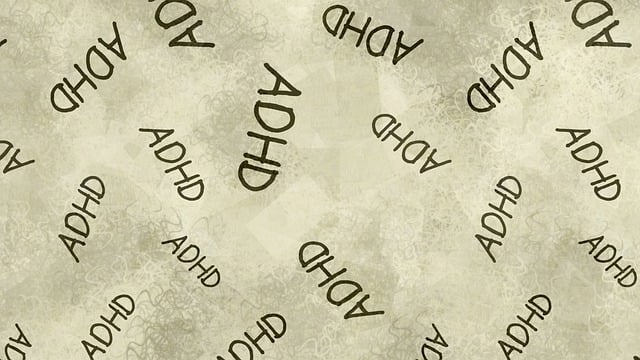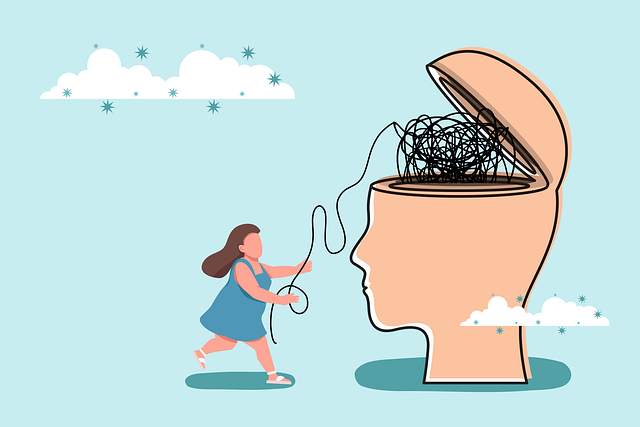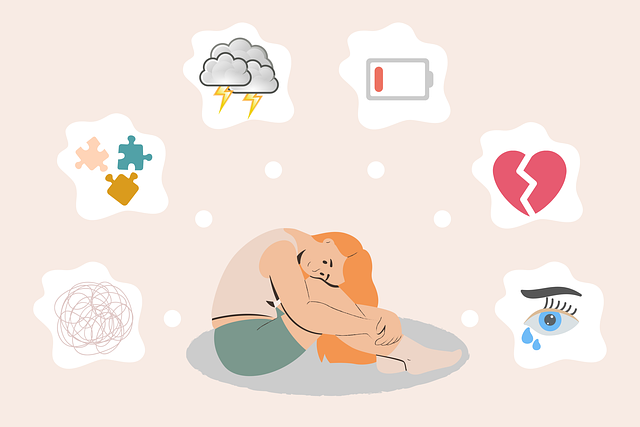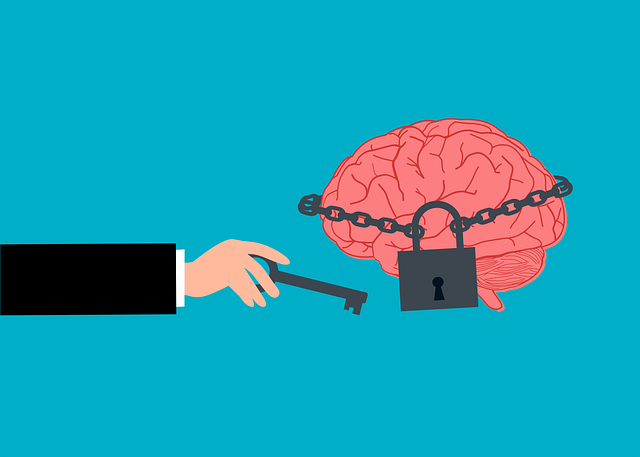Mindfulness meditation, traditionally an adult practice, is gaining popularity as a beneficial tool for children in therapy or grief counseling. It teaches present-moment awareness and non-judgmental acceptance of breath, bodily sensations, and surroundings, helping young individuals develop better self-awareness and emotional regulation skills. Incorporating mindfulness into daily routines aids stress management and trauma support services, promoting resilience in challenging situations. Crisis intervention guidance can also benefit from its non-intrusive approach to helping children process emotions and experiences. Early exposure to mindfulness enhances emotional regulation skills, boosting self-esteem and empowering children to manage their feelings effectively, especially during grief counseling sessions.
Mindfulness meditation is a powerful tool for young minds, offering a calming sanctuary in today’s fast-paced world. This practice, often used as therapy for young children, can significantly enhance emotional well-being and help them navigate stressful situations, especially during grief counseling sessions. Our guide explores effective strategies to introduce mindfulness to kids, from understanding its basics to integrating it into daily routines. We provide practical techniques and activities to make meditation sessions engaging and beneficial for young, inquisitive minds.
- Understanding Mindfulness Meditation for Children
- Benefits of Mindful Practices in Young Minds
- Preparing for a Meditation Session with Kids
- Techniques and Activities to Implement
- Integrating Mindfulness into Daily Routines
Understanding Mindfulness Meditation for Children

Mindfulness meditation, often perceived as a practice for adults, is gaining recognition as a powerful tool for children as well. This ancient technique involves training the mind to be fully present and aware of the current moment, fostering a sense of calm and clarity. For young individuals, especially those navigating therapy for young children or dealing with grief counseling, mindfulness offers a unique approach to managing their emotional well-being. By encouraging children to focus on their breath, bodily sensations, and surroundings without judgment, mindfulness meditation helps them develop better self-awareness and emotional regulation skills.
Incorporating this practice into their daily routines can significantly contribute to stress management and trauma support services for children. It teaches them to respond rather than react to challenging situations, fostering resilience and a sense of control. Crisis intervention guidance can benefit greatly from mindfulness meditation as it provides a non-intrusive way to assist children in processing their emotions and experiences. This simple yet profound practice has the potential to empower young minds, enabling them to face life’s challenges with increased awareness and composure.
Benefits of Mindful Practices in Young Minds

Mindful practices have gained significant attention for their profound benefits on young minds. Incorporating mindfulness into a child’s routine can serve as an effective therapy for various issues, including managing grief and anxiety. Through simple techniques like mindful breathing and body scans, young individuals learn to stay present, enhancing their ability to cope with challenging emotions. This early exposure to mindfulness meditation can lead to improved self-esteem and better emotional regulation skills, empowering children to navigate their feelings more effectively.
In the context of grief counseling for kids, mindfulness becomes a powerful tool. It helps them process complex emotions associated with loss, fostering a sense of calm and understanding. Moreover, regular practice contributes to developing conflict resolution techniques, as children learn to respond mindfully rather than react impulsively. This self-care routine development is crucial for building resilience and promoting better mental health in the long term.
Preparing for a Meditation Session with Kids

Preparing for a meditation session with kids involves creating a calm and welcoming environment that fosters both relaxation and learning. Start by establishing a routine; children thrive on predictability, so set a consistent time and place for your practice. Make it inviting—add soft lighting, comfortable seating, and perhaps some soothing music or nature sounds to help them transition into a mindful state. Encourage active participation through age-appropriate activities like coloring or guided visualizations, which can make meditation more engaging and enjoyable for young minds.
Incorporating mindfulness into children’s lives not only aids in stress reduction but also serves as a form of therapy for young children, particularly those dealing with grief counseling. By teaching them to focus on the present moment, you’re helping them build resilience and cultivate positive thinking skills. Mind over matter principles become more accessible when kids learn to observe their thoughts and emotions without judgment, setting the stage for healthier emotional responses and improved mental well-being.
Techniques and Activities to Implement

Mindfulness meditation offers a gentle yet powerful tool for young children navigating emotional challenges, including those experiencing grief. Simple techniques can be easily integrated into daily routines to foster mental wellness and mood management. One effective practice is mindful breathing exercises, where children are guided to focus on inhales and exhales, helping them stay present and calm. This activity can be particularly beneficial during grief counseling sessions, allowing kids to process their emotions in a safe and supportive environment.
Incorporating mindfulness into playtime and everyday activities is another strategic approach. For instance, engaging in sensory-based experiences like playing with different textures or exploring nature encourages children to engage their senses fully, promoting mental health education programs design that enhance awareness and emotional regulation. These practices not only support young individuals’ mental wellness but also provide them with valuable coping mechanisms for life’s ups and downs.
Integrating Mindfulness into Daily Routines

Integrating mindfulness into daily routines can be a powerful tool for promoting mental wellness and positive thinking in both children and adults. For young ones experiencing therapy for grief counseling, practicing mindfulness offers a gentle way to process emotions and develop coping mechanisms. By incorporating simple breathing exercises or mindful walks during their day, these exercises can help them build resilience and navigate challenging feelings more effectively.
This practice is equally beneficial for healthcare providers looking to prevent burnout. Amidst demanding work schedules, taking moments to focus on the present through mindfulness meditation can recharge mental energy, enhance emotional regulation, and improve overall job satisfaction. These strategies contribute to a healthier balance between professional and personal life, fostering well-being in both healthcare professionals and their patients.
Mindfulness meditation offers a powerful tool for nurturing young minds, promoting emotional well-being, and enhancing focus. By integrating these practices into daily routines, parents and caregivers can foster resilience in children, helping them navigate life’s challenges with greater ease. The benefits extend beyond improved attention span; mindfulness supports healthy coping mechanisms, reduces stress, and even serves as a complementary therapy for young children experiencing anxiety or trauma, including those seeking grief counseling. With dedicated guidance and engaging techniques, introducing mindfulness meditation to kids can be a transformative journey for the entire family.

